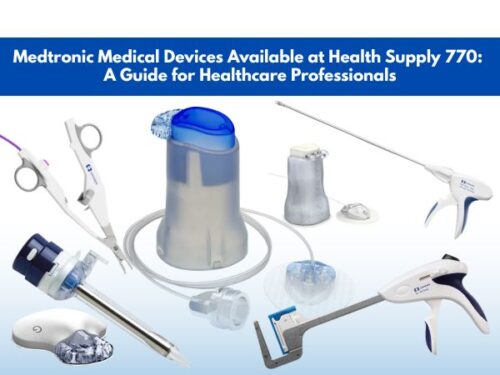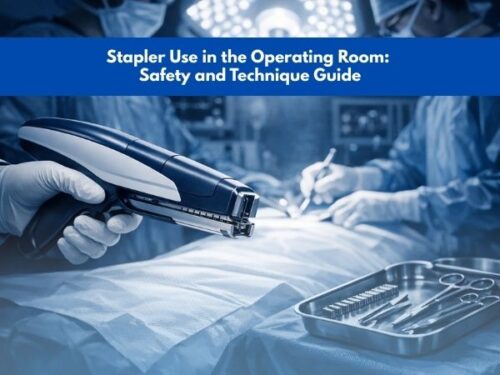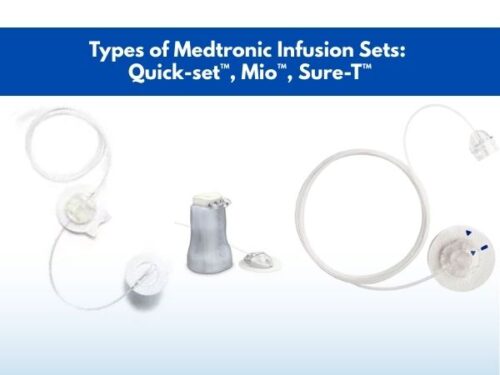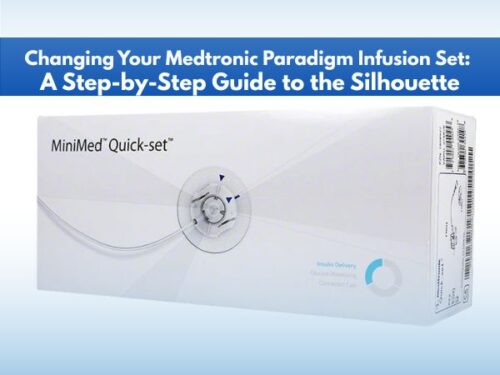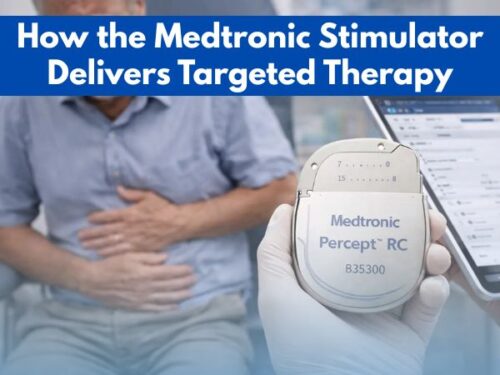Choosing Between CPAP and BiPAP for Sleep Apnea: Solutions Offered by Health Supply 770
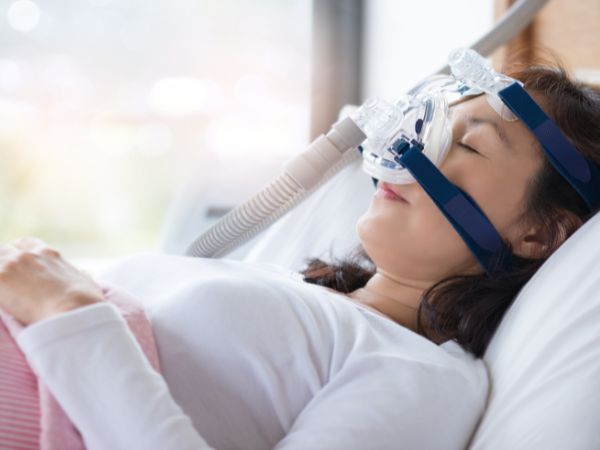
Sleep apnea is a condition in which a patient feels a hindrance in breathing during sleep. This shallow breathing is not an issue of few but nearly 39 million US adults suffer from sleep apnea. Therefore, for the management of this condition, the employment of non-invasive positive airway pressure machines like CPAP and BiPAP for sleep apnea is common.
However, there is always confusion regarding the difference between both of these sleep apnea machines. To settle the debate, let us dive into a detailed comparison of CPAP vs BiPAP machines for sleep apnea treatment along with the top products available at Health Supply 770.

What is a CPAP Machine?
The continuous positive airway pressure, simply known as the CPAP machine is one of the most widely used treatment options for sleep apnea as recommended by the American Academy of Sleep Medicine (AASM).
These ensure the flow of a constant level of air pressure during inhalation and exhalation. However, some of the CPAP machines are also capable of auto-adjusting the air pressure based on the breathing pattern of the patient.
Working
A CPAP machine aids the process of inhalation and exhalation by delivering steady pressure at a continuous rate. The pressure of a CPAP machine is not adjusted automatically rather it stays the same throughout its use.
Pros
The CPAP machines have the following merits:
● The CPAP machines are considered the simplest treatment options for sleep apnea.
● These machines are known for improving focus, alertness, and mood, as well as reducing drowsiness.
● With their regular use, the CPAP machines are also known to assist in the management of blood sugar levels in diabetic patients.
● These sleep apnea machines are backed by extensive research regarding their efficacy.
Cons
Like some of the disadvantages of BiPAP for sleep apnea, the following are the demerits of the CPAP machines:
● Despite the effectiveness of its constant pressure feature, a CPAP machine can lead to discomfort while breathing.
● The patient may feel choking if the pressure of the CPAP machine is high.
Indications
A CPAP machine is recommended to be used in patients dealing with the following issues:
● Obstructive sleep apnea (OSA)
● Central sleep apnea
● Medication-related breathing issues
● Post-upper airway surgery
● Congestive heart failure (CHF)
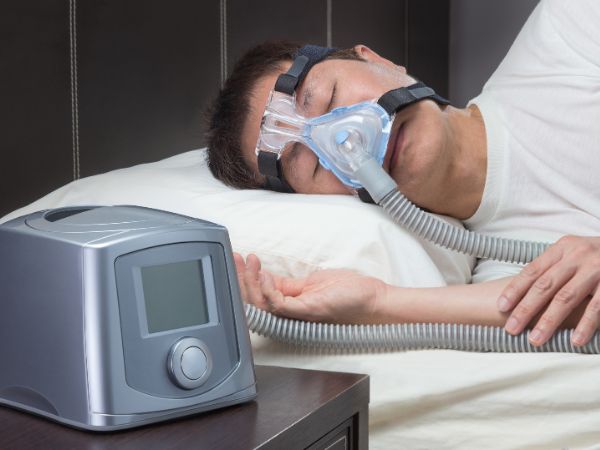
What is a BiPAP Machine?
BiPAP or BPAP means bilevel positive airway pressure. It is called so as this machine is capable of delivering two pressures at a time i.e. inhalation positive airway pressure (IPAP) and exhalation positive airway pressure (EPAP).
Like CPAP devices, some of the BiPAP for sleep apnea are fixed level which operates at specified pressure values for inhalation and exhalation while others have an auto-adjusting feature that enables them to adjust the pressure based on the patient’s needs.
Working
A BiPAP for sleep apnea has a motorized machine with tubing and a mask or nasal plugs which is to be fixed on the patient’s nasal cavity. When turned on, the machine delivers pressurized air into the lungs thus enhancing breathing.
When the patient is inhaling, the air pressure is higher while during exhalation, this pressure is lowered.
Pros
The use of BiPAP for sleep apnea has the following merits:
● BiPAP machines are best for providing low to moderate pressure ranges.
● These systems are extremely small and lightweight so can be carried around easily.
Cons
The following are the demerits of the BiPAP machines:
● A BiPAP machine is not ideal for those whose breathing rate is extremely low.
● When used for longer, the BiPAP machine can cause irritation to the patient. Some patients also report claustrophobia (the feeling of being trapped) due to BiPAP use.
Indications
Apart from being known as BiPAP for sleep apnea, these devices are ideal for use in patients who are suffering from any of the following conditions:
● Obstructive sleep apnea (OSA)
● Central sleep apnea
● Chronic obstructive pulmonary disease (COPD)
● Pulmonary edema
● Pneumonia
● COVID-19
● Obesity hypoventilation syndrome (OHS)
● Amyotrophic lateral sclerosis (ALS)
● Muscular dystrophy
● Hypercapnic respiratory failure
● Hypertension
● Coronary artery disease
● Congestive heart failure (CHF)
● Neurological disorders

Side Effects of CPAP and BiPAP Machines
Despite their vast utilization, the use of PAP machines comes with certain side effects as well. Some of these include:
● Insomnia
● Discomfort and unease
● Dry mouth
● Nasal dryness
● Runny nose
● Redness and irritation of the facial skin
● Nasal congestion
● Nausea
● Bloating
● Infections
● Mood disorders
● Heart disorders
Contraindications of CPAP and BiPAP Machines
PAP systems are not suitable for you if you suffer from any of the following:
● Leakage of cerebrospinal fluid (CSF)
● Frequent episodes of nasal bleeding
● Collapsed lungs
● Bullous lung disease (a condition in which alveolar walls are damaged and form pocket-like structures called bullae)
Difference between CPAP and BiPAP Machines
Both the machines i.e. CPAP as well as BiPAP for sleep apnea look quite similar in size and construction. Their working principles are also identical. However, these respiratory care systems differ in the following ways:
| Features | CPAP Machines | BiPAP Machines |
| Air Pressure Level(s) | 1 | 2 |
| Air Pressure Range | 4 to 20 cm H2O | 4 to 30 cm H2O |
| Different IPAP and EPAP | ✘ | ✔ |
| Automatic Air Pressure Adjustment Feature | ✔ | ✔ |
| Mask coverage | Nasal cavity | Nasal and oral cavity |
| Portability | ✔ | ✔ |
| Suitability for Home-Based Use | ✔ | ✔ |
| Cost | $500 to $1,000 | $1,700 to $3,000 |
| Insurance Coverage | ✔ | ✔ |
| Primary Indication | Mild to moderate sleep apnea | Severe sleep apnea, central sleep apnea |
CPAP vs BiPAP: Which to Choose?
If you suffer from sleep apnea, the first thing you need to do is visit a sleep expert. After checking your condition, your doctor will write you a prescription for certain air pressure settings that you require for the alleviation of apnea. This prescription is then sent to a supplier who chooses a suitable positive airway pressure machine for your needs.
In some cases, your physician might directly prescribe you a CPAP or BiPAP machine depending on the level of sleep apnea you have as well as based on the air pressure that will suit your condition.
If, after using a PAP machine i.e. CPAP or BiPAP for sleep apnea for some time, your apnea still does not go away, your doctor might recommend another PAP system for your condition.
CPAP and BiPAP Machines at Health Supply 770
Like many other medical devices, Health Supply 770 also has a wide range of top-quality positive airway pressure systems. These machines i.e. CPAP and BiPAP for sleep apnea help the patients breathe properly thus increasing their comfort level as well as providing their bodies with oxygen. The following are some of the best Health Supply 770 sleep solutions offered on their website:
AirFit F20 Full Face CPAP Mask – ResMed

Price: $193.88
Product Details
AirFit F20 full-face CPAP mask is a product of ResMed. The product is good and quick fitting for patients of all ages and sizes as the mask can be easily adjusted tightly against the face. The product has an advanced InfinitySeal silicone cushion which enables it to adjust based on the patient’s movements.
The system also has QuietAir vent technology which limits the noise during usage thus increasing patient comfort. Moreover, the product is not made up of natural rubber latex which means it does not cause allergies to patients with sensitive skin. The AirFit F20 CPAP machine is capable of performing high-therapy pressure therapy as well as bilevel and NIV therapies apart from the CPAP therapy.
AirMini AutoSet™ Travel CPAP Machine

Product Details
Like some of the respiratory care devices like BiPAP for sleep apnea, AirMini AutoSet™ travel CPAP machine is a small and ultra-portable system that is suitable for use at home as well as while traveling. The AutoSet algorithm of the CPAP system is capable of estimating the breathing rate of the patient and adjusting the airflow pressure respectively. Overall, the product is one of the best therapies for sleep apnea.
Fisher & Paykel ESN2SML CPAP Mask Systems Eson™ 2 Nasal Style Small / Medium / Large Cushions Universal

Price: $185.00
Product Details
Fisher & Paykel ESN2SML CPAP mask systems Eson™ include 2 nasal-style universal cushions in three sizes i.e. small, medium, and large. This headgear is suitable for usage with ResMed Mirage masks, and Philip Respironics masks, as well as with other notable brands which have 4 connection points.
It is also easy to put the product on as the patient just has to wrap the well-constructed headgear around the head followed by adjustment using straps. The product is of high quality, convenient to use, and comfortable for the patients.
CPAP Mask Eson™ Mask with Forehead Support Nasal Mask Style Medium

Price: $152.88
Product Details
CPAP Eson™ mask with forehead support is a nasal-style mask that comes in medium size. Its headgear fastening feature enables the users to adjust the mask according to their needs. Moreover, the mask also has forehead support. The product is of high quality, convenient to use, and comfortable for the patients. When it comes to wearing the CPAP Eson mask, one just has to wear the well-constructed headgear mask around the head and adjust it based on the adjustable straps.
ResMed AirSense 11 AutoSet
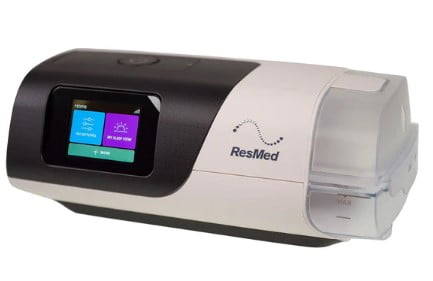
Product Details
Like most respiratory machines including CPAP and BiPAP for sleep apnea, ResMed AirSense 11 AutoSet is a non-invasive respiratory aid. The product has a combined enhanced digital health technology that offers effective therapy. The product has been designed in a way that assists those suffering from sleep apnea for longer.
The product is easy to use, smaller in size, and portable. Moreover, the system also comes with an online support system which allows the user or the caregiver to learn how to operate the system properly. For this purpose, your app has been introduced.
In addition to providing basic information regarding the use of the ResMed AirSense 11 AutoSet machine, the app also provides access to healthcare professionals like Personal Therapy Assistants for further consultation.
*The prices mentioned in the above section are taken from the Health Supply 770 website. These may vary based on the vendor you choose for making a purchase.

The respiratory aid i.e. CPAP and BiPAP for sleep apnea mentioned in this article, along with many other medical supplies, can be purchased from Health Supply 770, a reliable name when it comes to medical products. They have a 30-day money-back guarantee and provide your products to you in the shortest possible time. Click the links given in the article to check the wide range of devices including CPAP and BiPAP for sleep apnea on the website.
Conclusion
Sleep apnea is a condition that renders a person feel uncomfortable while sleeping as the breathing tends to stop frequently. As a therapy, positive airway pressure systems are used which assist breathing by providing a suitable air pressure. This way, the patient’s comfort is increased.
Choosing a type of PAP system, from CPAP and BiPAP for sleep apnea, is dependent on the kind of apnea a person has as well as the recommendations of the physician or sleep expert.
Considering their importance in the management of respiratory issues, it is recommended to have devices like CPAP and BiPAP for sleep apnea at home at all times. In this regard, for purchasing these respiratory care devices, reliable vendors like Health Supply 770 should be approached. They ensure the provision of quality products along with satisfactory services.
References
